News
Screening JAPANESE ROBOTIC TECHNOLOGY films on 25.05.2019 at 6.00 p.m. at IJCCI premises. All are welcome
Special Meeting on Ushering in a new Japanese Era: 24th May 2019 at 5.30 p.m. at Hotel Savera. For details click here
‘Impact of Insolvency Law on your Payables & Receivables’ at 6 pm on 26th April at Hotel Savera
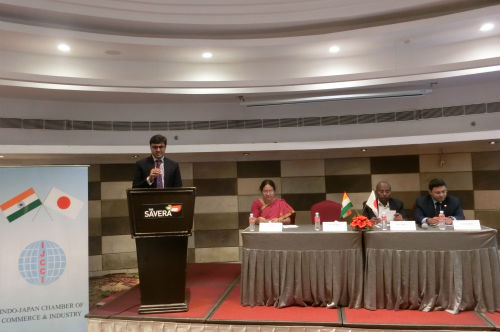
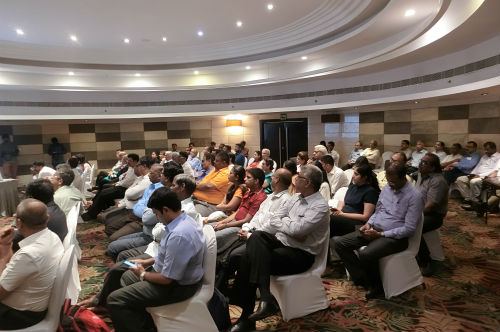
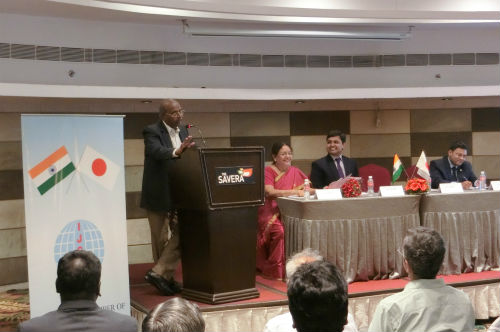
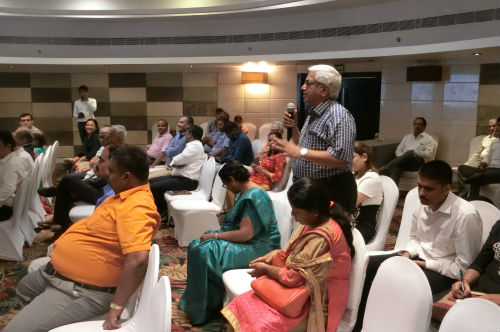
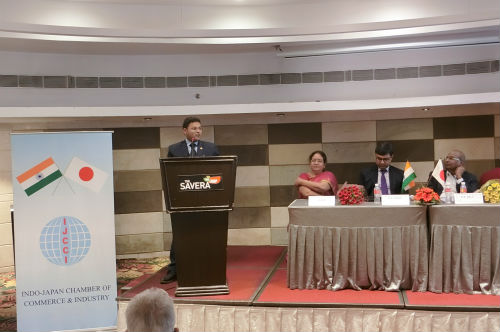
Ikebana Exhibition at IJCCI 19.01.2019 & 20.01.2019, inaugurated by Mr. Kojiro Uchiyama, Consul-General of Japan, Chennai.
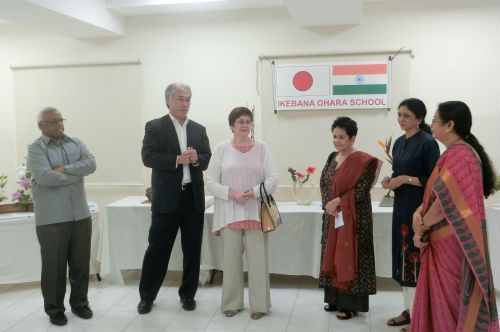
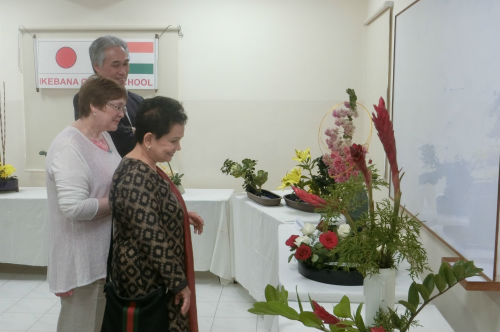

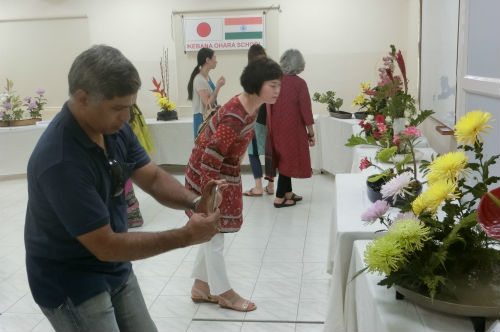
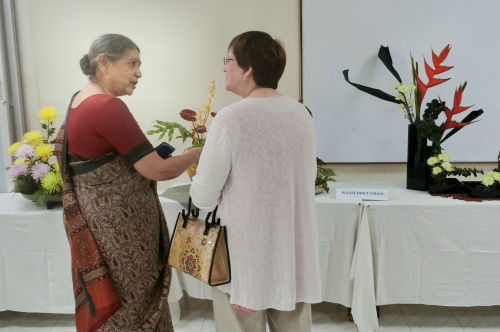
Mr.RamKumar Bonsai Expert Conducted the class on 28th July at IJCCI Premises for the Members.
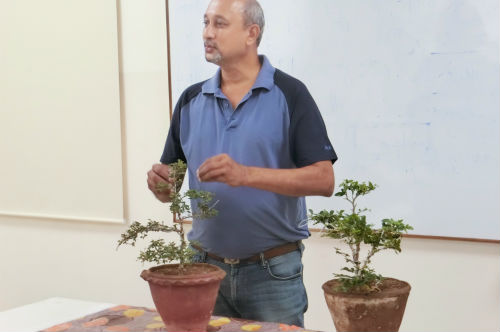
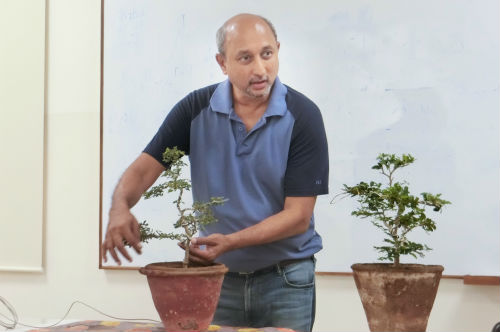


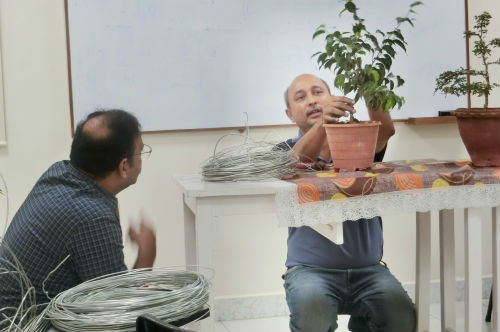
IJCCI Chamber Day on 22.06.2018. Chief Guest Mr. Tarun Das, Guest of Honor Mr. Kojiro Uchiyama

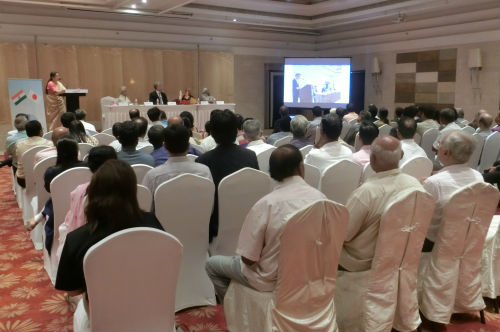


Welcome Reception to Consul-General Mr. Kojiro Uchiyama and Madame Karen Janette Uchiyama.
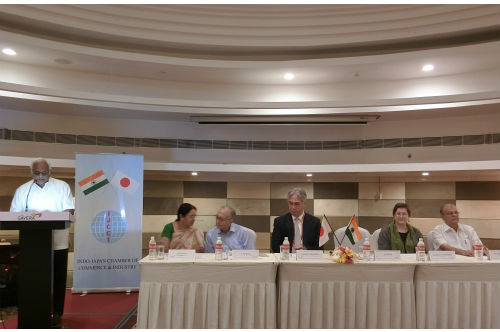

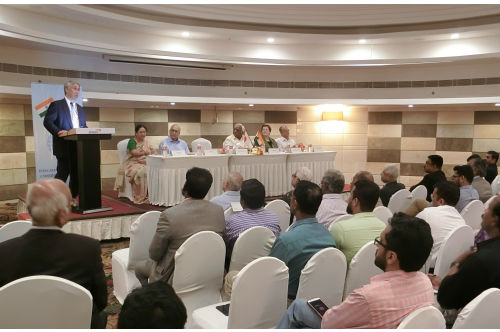

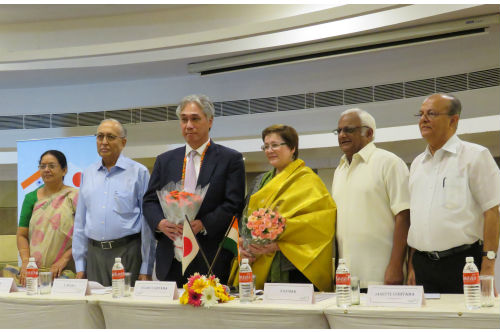
IJCCI BONSAI CHAPTER ORIENTATION PROGRAMME 28.04.2018
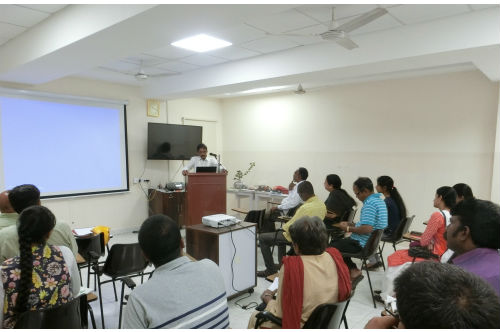
Secretary Bonsai Chapter Mr. Sundhaar welcoming the members

Vice-President Ms. Shabu Ali briefing the members
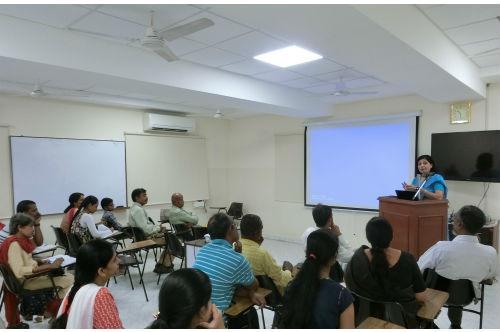
Vice-President Ms. Shabu Ali briefing the members
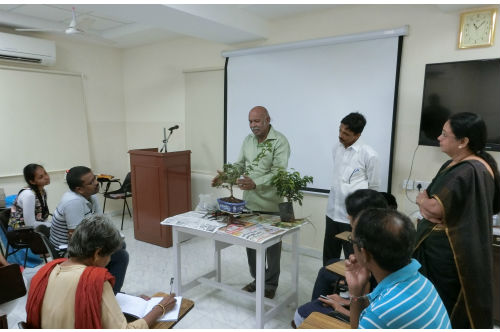
President Mr. K. Sivaji demonstrating the techniques

President Mr. K. Sivaji demonstrating the techniques
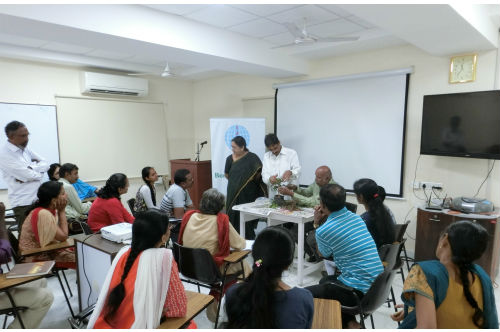
President Mr. K. Sivaji demonstrating the techniques

President Mr. K. Sivaji demonstrating the techniques

President Mr. K. Sivaji demonstrating the techniques
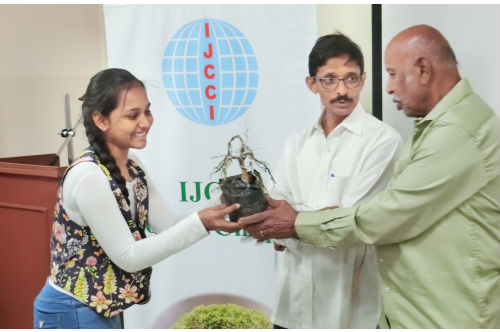
Ms. Riyanka receiving the plant after learning wiring technique

Group photo of particiapants
IJCCI Bonsai Chapter was inaugurated by Madame Hiroko Taniguchi, Acting Consul-General of Japan, Chennai on 31st March 2018.
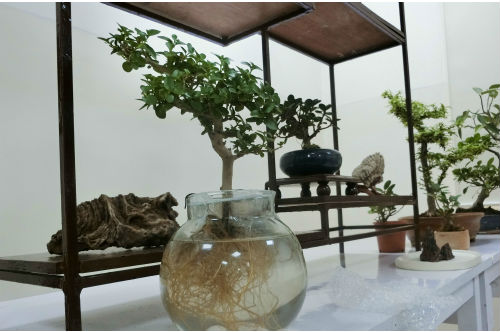
Don't Miss out Bonsai without soil , first of its kind in Asia finds a place in the exhibits

Mr. N. Murali, Co-Chairman 'The Hindu' & Chairman IJCCI addressed the gathering
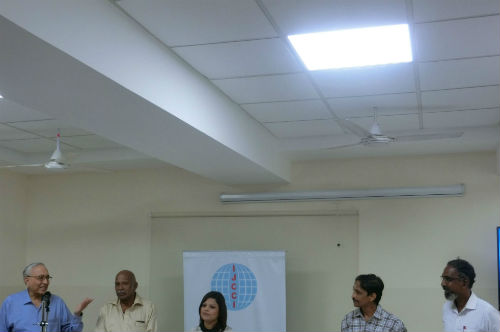
Chapter Members being inducted by Chairman
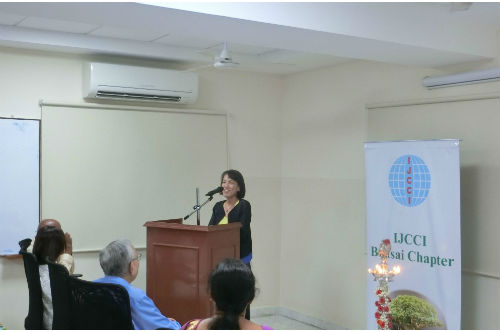
Madame Hiroko Taniguchi, Chief Guest, addressing the gathering after she lighted the lamp

Mr. K. Sivaji, President IJCCI Bonsai Chapter made a presentation
PRESENTATION – CUM – INTERACTION WITH MS. MOTOKO KURAMOCHI, TOKYO ON EMPLOYMENT OPPORTUNITY IN JAPAN 25.02.18 AT IJCCI
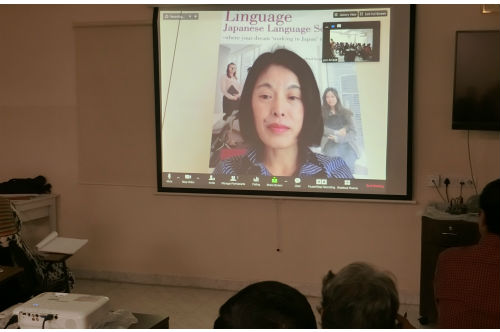
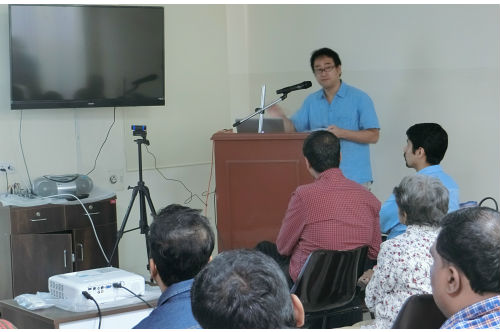



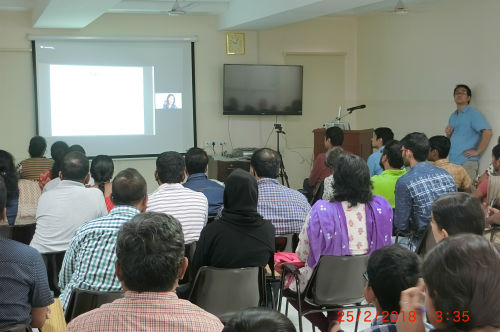




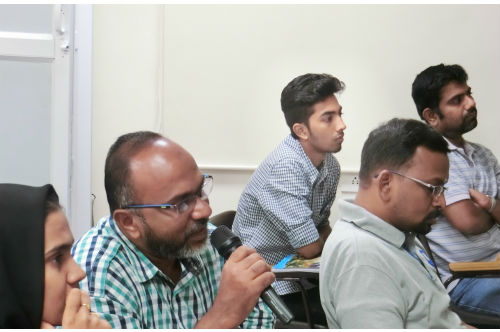

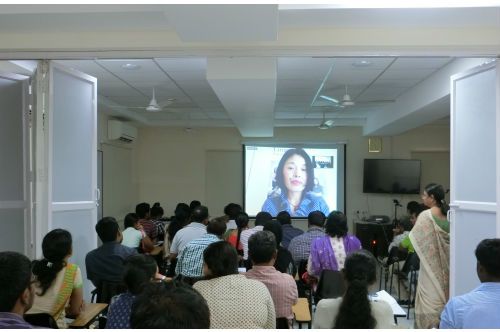
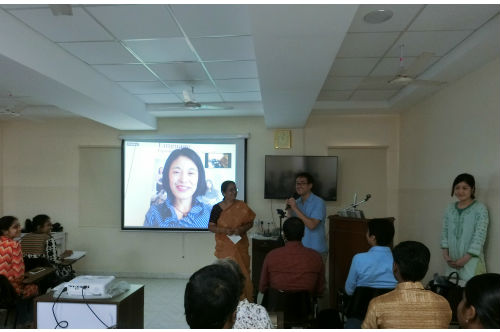
ENVIRONMENT TECHNOLOGY MISSION FROM JAPAN INTERACTING WITH THEIR INDIAN COUNTERPARTS OVER A SEMINAR & B2B IN CHENNAI 07.02.2018.
Foreign Minister, Government of Japan's Commendation Award to Mr. N. Kumar, President, IJCCI on 29.08.2017.

Mr. N. Kumar, President, IJCCI receiving the Commendation Award from Consul-General.

Mr. N. Kumar with the Consul-General Mr. Seiji Baba & representatives from Japan & Japanese Chamber.
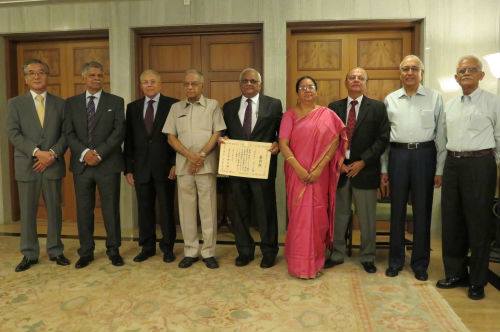
Mr. N. Kumar with the Consul-General Mr. Seiji Baba and the Board Members of IJCCI.

Mr. N. Kumar with the Consul-General Mr. Seiji Baba and with his family members.

Hon'ble Mr. Seiji Baba explaining the Commendation Certificate details at the Presentation function.
Foreign Minister, Government of Japan's Commendation Award to Mr. N. Kumar, President, IJCCI on 29.08.2017.

Mr. N. Kumar, President, IJCCI receiving the Commendation Award from Consul-General.

Mr. N. Kumar with the Consul-General Mr. Seiji Baba & representatives from Japan & Japanese Chamber.

Mr. N. Kumar with the Consul-General Mr. Seiji Baba and the Board Members of IJCCI.

Mr. N. Kumar with the Consul-General Mr. Seiji Baba and with his family members.

Hon'ble Mr. Seiji Baba explaining the Commendation Certificate details at the Presentation function.
Bonsai Exhibition on 26 & 27.08.2017 at IJCCI premises
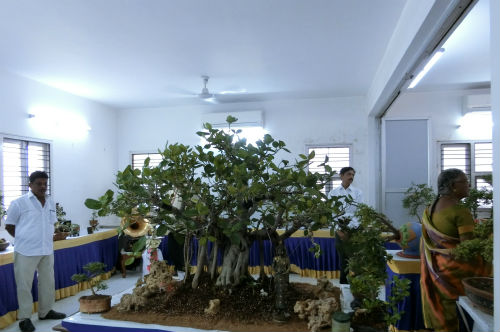

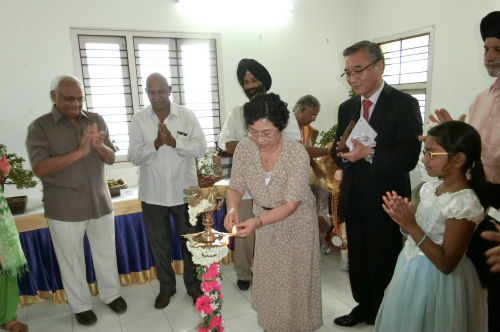
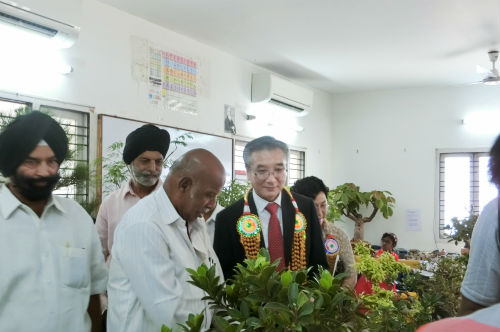

"Emerging Consumption Tide in Small & Medium Cities in China and the Challenge for Japanese Industries" by IJCCI, Chennai Center for China Studies,Athena Infonomics on 18.08.2017




"Confluence of Japanese and Indian Instrumental Music", 22.07.2017

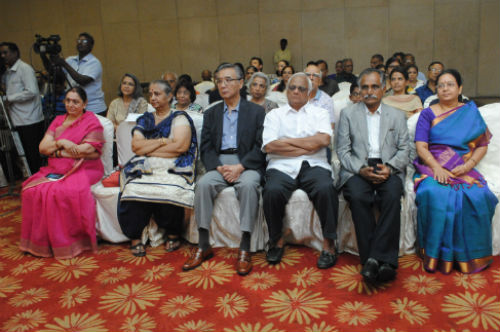

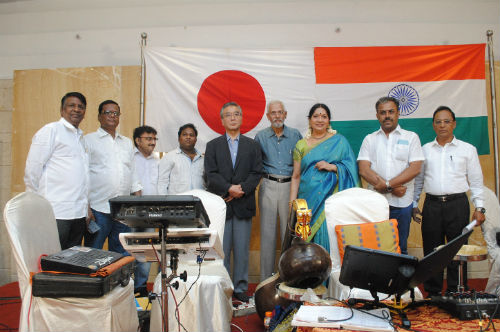
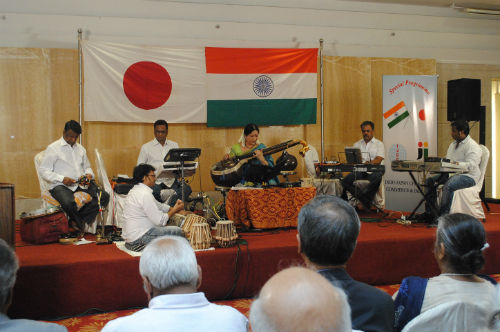
Special Meeting on GEARING UP FOR GST on 10.06.2017. Mr.C.P.Rao, Chief Commissioner of Service Tax, Central Board of Excise & Customs delivered the Keynote Address.

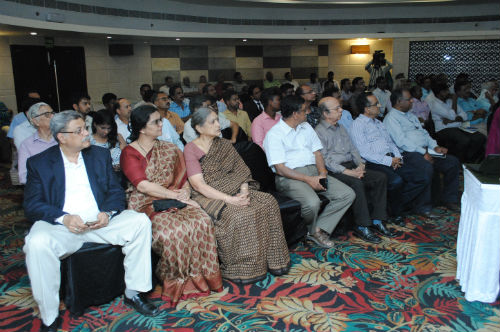

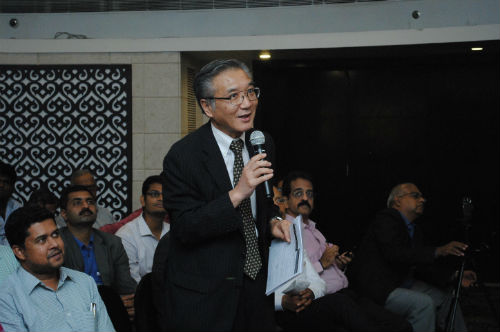
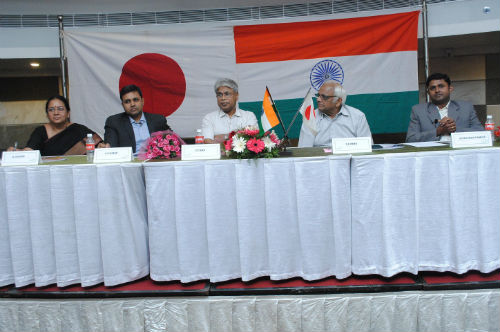

The kouryuu kurabu activity of 27th May 2017
The kouryuu kurabu activity of 27th May 2017, skits in Japanese, was a great success with all classes participating in writing and enacting short skits in Japanese. The enthusiastic students had an enjoyable and fun evening. The event was coordinated by Ms Nivedita and Ms Shwetha, office bearers of the kouryuu kurabu. The topics were varied and involved scenes on visiting a doctor, shopping, ordering at a restaurant and meeting of friends.





IJCCI CHAMBER DAY MEETING on 11th May 2017. Chief Guest : Mr. M.M. MURUGAPPAN, Vice-Chairman, Murugappa Group

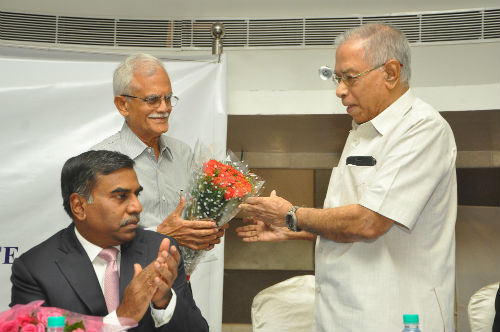
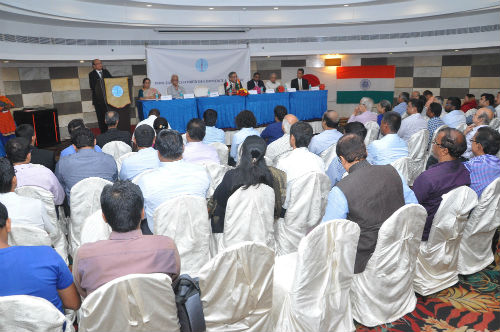

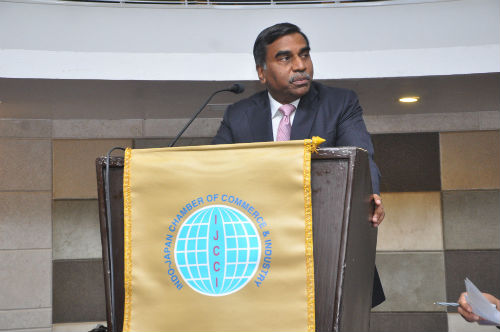



Release function of IJCCI's Economic Survey Report on ' Understanding Indian Industry Expectations from Japanese Companies in Tamilnadu ' on March 23, 2017 in Chennai.





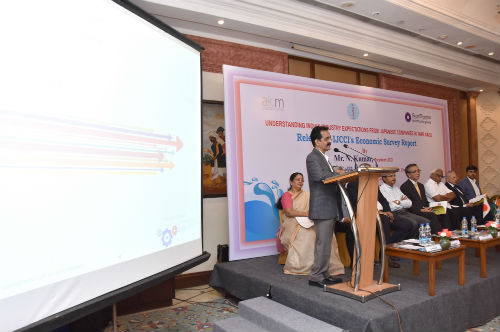

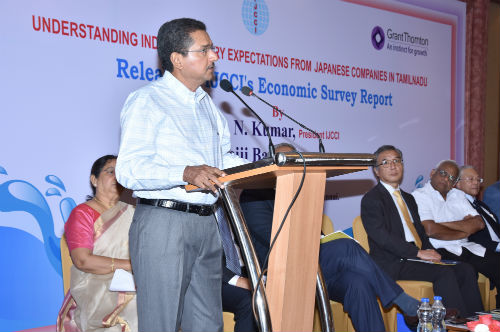


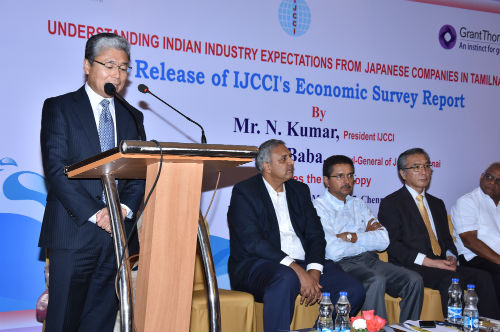

The kouryuu club met on March 4, 2017
The kouryuu club met on March 4, 2017 and had an enjoyable session of origami. The students made many origami designs and learnt the art of paper folding. The session was led by Ms Shweta Nichani (N4 student) and assisted by Mr Dinakaran(N2 student) and Mr Naresh R (N5 student).
New Dimensions in India-Japan Relations - 25/2/17
Ongaku to Dorama - The third activity of Nihongo Kouryuu Kurabu - 5:30 pm, Sep 24, 2016
There are different ways to learn a language. Few of the fast, easy and fun ways to learn are by singing and roleplaying. Music connects across cultures and helps to foster the understanding of a language through right pronunciation, intonation by following the rhythm and the emotion conveyed by the words put together.
The students of IJCCI who charmed the Japanese audience with their performance on the Japanese night, were more than delighted to perform for us again on the 24th of September for the Kouryuu Kurabu activity.
We began with a skit which was a comical sequence of tongue twisters. They are a great way to improve pronunciation and speed of communication. It is important to be able to speak and sound clearly with a good diction. By repeating the difficult words quickly and correctly, tongue twisters also help beginners of a language avoid any confusions in meaning between similar sounding words.
Following the skit was a medley performance by our students, which was a wonderful fusion of the popular Japanese songs Miagete Goran, Tanabata Song - Sasa no ha Sara Sara, Mori no Kuma San, Ooki na kuri, Shiawase naratte o tatakou. But we did not just stop with the skit that tickled our stomach and the soothing medley performance. The singers explained the meaning and the significance of each song. With each explanation, we had a sing along session with the audience. By the end of the programme, some of the people from the audience even stood up and cheered, joyfully singing along with the singers.
Once again, all of us came together at IJCCI to celebrate, enjoy, and learn the language that we love.
Nihon no Oshougatsu - The second activity of Nihongo Kouryuu Kurabu - 5:30 pm, Aug 27, 2016

All festivals bring families and friends together, both close and distant. In fact, festivals light up our lives with ecstatic joy and happiness that will make us want to be better people in our lives.
On the 27th of August, IJCCI organized the club’s second programme with a theme of festive celebration. There are a lot of festivals that hold cultural and traditional values in Japan. “Oshougatsu” or New Year is amongst the most anticipated festivals in Japan. Like any other festival, New Year is about getting people together and spreading the joy. Also, it is a symbol of renewal.
We began by interacting with our fellow students about how each of them celebrated their New Year and got a lot of opinions that were interesting, delightful and also amusing. It was interesting to learn and share with each other the various cultural and traditional ways of welcoming the New Year. A striking difference is that our New Year’s celebration lasts for a day while in the Japanese culture, it started from a month before, from December till the New Year’s day. It was remarkable to see that, amidst this huge difference, there are many similarities between our celebrations.
We also learnt that in December, various parties were held to bid farewell to the problems and concerns of the past year. What really astounded us was one of their beliefs - The shrines strike their gongs 108 times to get rid of 108 types of weaknesses. Truly strikes a chord with our traditions, right? We also exchanged information on what and how differently the Japanese celebrate the New Year. Despite the differences there are a lot of similarities like the custom of the elders giving money to the children and the popular tradition of New Year’s cards. We might be from different lands, but just like us, the Japanese visit beautiful places and have a wonderful time along with a grand feast.
Towards the end, we played a very beautiful and popular song called “Oshougatsu” for the students. All of us sang along with the music a couple of times together. By translating the meaning of the song, we discovered a new set of vocabulary pertaining to New Year!
It is important to note that the involvement, interaction and support from the students and the teachers are worth mentioning. Once again, we succeeded in making people learn the fun way. We’re sure that everyone will be looking forward to the next programme!
Seminar on Japan - Your Investment Destination - 21/7/16










Seminar on Japanese Cooperation










IJCCI Chamber Day Function - 26/4/16
IJCCI Chamber Day was celebrated on 26.04.2016. His Excellency Mr. Kenji Hiramatsu, Ambassador of Japan to India was the Chief Guest and delivered a Special Address on the occasion.
Hon'ble Mr. Seiji Baba, Consul-General of Japan in Chennai and Mr. N. Murali, Director, Kasturi & Sons felicitated. Madame Hiramatsu and Madame Atsuko Baba participated in the function.
Inauguration of Nihongo Kouryuu Kurabu (Japanese Interaction Club)
Kouryu Kurabu, the Japanese Language School’s student club, instituted to promote Interaction in Japanese and Cultural understanding of Japan, was inaugurated on 2nd April 2016. The Honourable Consul General of Japan in Chennai, Mr Seiji Baba was the Chief Guest and Mr. N Kumar, President, IJCCI presided over the function. The students of IJCCI Language School performed a skit and presented speeches in Japanese. Ms Maruyama Masako enthralled the audience with a demonstration of Furoshiki – the Japanese art of wrapping with cloth. The Student Secretariat of the Kouryu Kurabu for 2016-2017 are Ms Supraja Parvathy (Convenor), Ms Niveditha Bharathi (Secretary), Ms Shweta Nichani (Asst. Convenor) and Mr Rajsekhar (Asst. Secretary). The club will meet once a month.
2016-2017年の予算上のセミナー
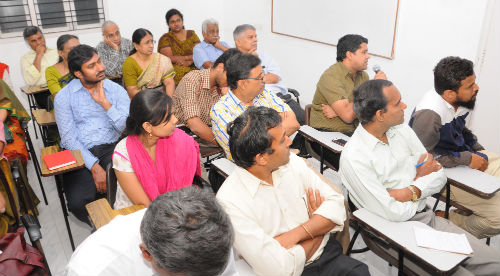
4月7日の月曜日にIJCCIで行った予算上のセミナーで専門家のゲストスピーカーがインドの2016年の予算案と税制に関しての意見交換をしました。
このセミナーは政策イニシアチブ、企業と個人所得税の変化、直税と間接税の変化、税制改革やGSTの実装のロードマップを中心して議論をしました。
広島からインドへの代表団の訪問
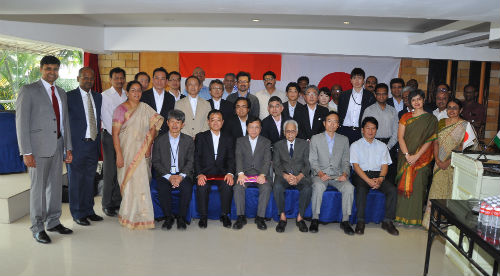
広島県からの16メンバーの日本ビジネス代表団は、チェンナイを訪問し、 IJCCIは、 2016年1月29日にIJCCIのメンバーの一部との短い交流セッションを開催しました。
多部門の代表団は、広島県の政府の高官、広島県のJETROチーフやビジネスマンで構成されていました。
インドと日本の間の相乗関係を育む

2015年10月31日に日本研究センターの開始で馬場誠治在チェンナイ日本国総領事、西ベンガル州の元知事のM.K.ナラヤヌ様と他の高官。最初の政策文章のリリースは「インドと日本の間の相乗関係を育む」。
IJCCI-JIBCネットワーク会議
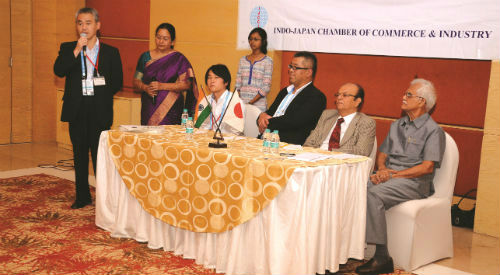
IJCCI-JIBCCネットワーキング会議で、タミル・ナードゥ州・グローバル・インベスターズミートのために2015年9月9日にチェンナイを訪問した14メンバーの代表団の日本のビジネスマンとIJCCIの取締役のR.ラーマクリシャナラージャとT.P.インビチャンヅ。




